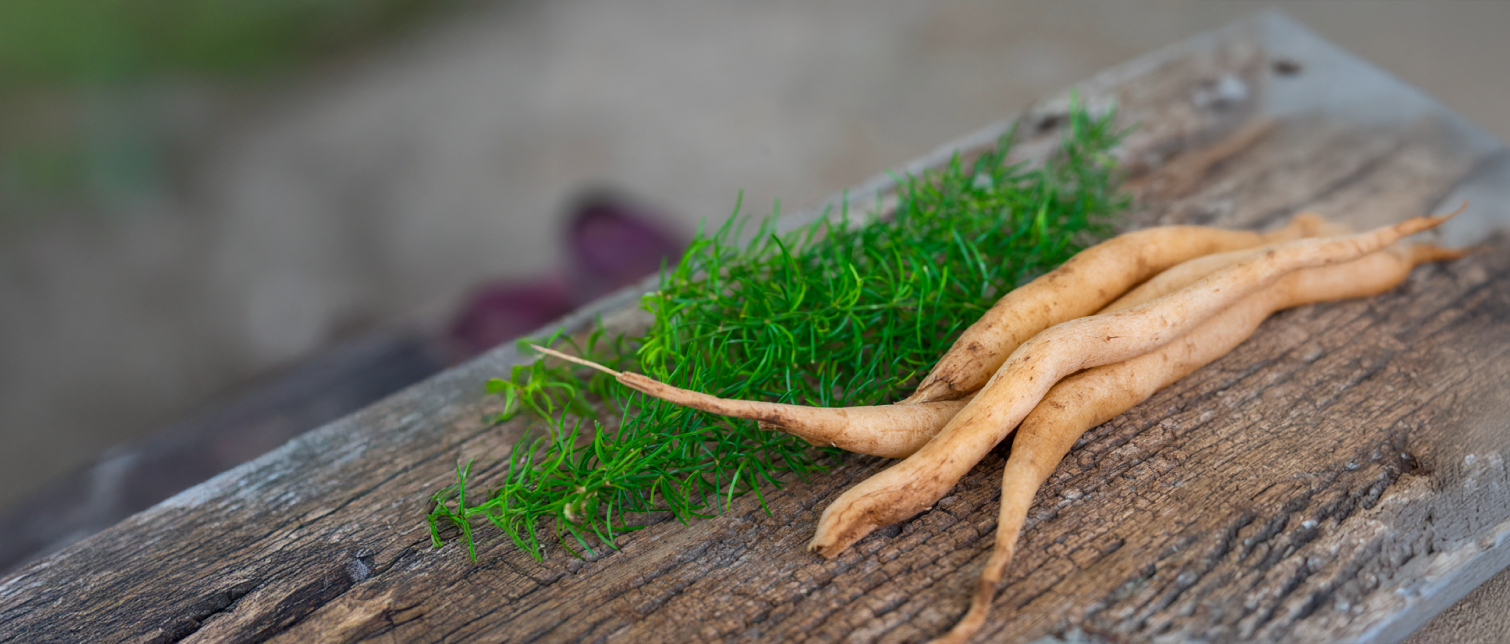The Herbs That Provide All-Natural Stress Relief...
In our last blog we focused on the concept of stress and took a look at the impact that experiencing it long-term can have on your physical health.
To quickly summarize, we discovered that while stress is actually a response that is designed to help protect us, a long-term experience of stress doesn’t just burden your mind, it also wears down the physical systems of your body including your respiratory, cardiovascular, and gastrointestinal systems.
Most importantly, we also learned how someone’s immune system can be compromised by an unhealthy stress response. As a result, it’s very important to look for immune-boosting products which respect the concept of stress as a potential antagonist of the immune system.
Remember, stress is defined as the body’s natural response to a perceived threat. Stress isn’t the problem - it’s making sure our body is able to return to normal function after the threat has passed. Which begs the question:
What key ingredients can promote a healthy stress response?
“The survival of the fittest.”
This phrase originated when Charles Darwin was looking for a way to describe his theory of Natural Selection.
Contemporary culture might cause us to misconstrue “the fittest” to mean the most physically capable. But Darwin was likely taking the word “fit” to mean “appropriate”. In this context, the one who will survive is the one most well-suited to their environment.
Leon C. Meggison, professor of Management and Marketing at Louisiana State University at Baton Rouge wrote:
“According to Darwin’s Origin of Species, it is not the most intellectual of the species that survives; it is not the strongest that survives; but the species that survives is the one that is able best to adapt and adjust to the changing environment in which it finds itself.”
This must sound digressive; what does “adapting to survive” have to do with fighting an unhealthy stress response?
Everything.
Adaptogens are the key ingredient to promoting a healthy stress response!
We’ll start at the beginning. Adaptogens are non-toxic plants used in herbal medicine that are believed to help the human body resist stressors… and not just mental ones either!
Stressors could also be physical or environmental, such as pesticides or toxic air particles. We have the same biochemical response to all of them.
To put it simply: Every time our body encounters a stressor, it needs to make an adaptation… and adaptogens help your brain and body adapt to the accompanying stress.
All adaptogens have the ability to modulate the stress response, and they’re not single-system focused, they are body-wide. They help your heart, your immune system, your kidneys, etc.
Whether we are aware of it or not, adaptogens are able to identify what needs to be balanced in our body, and balance it.
Some examples of common adaptogens:
Ashwagandha
Also known as Indian ginseng, poison gooseberry, and winter cherry, ashwagandha is an herb believed to mitigate stress and fatigue. It has been shown to mitigate levels of the stress hormone, cortisol.
In fact, a study in 2012 concluded that:
“Ashwagandha root extract improves an individual's resistance towards stress and thereby improves self-assessed quality of life. High-concentration full-spectrum Ashwagandha root extract can be used safely as an adaptogen in adults who are under stress.”
Eleuthero
The root of this adaptogenic shrub has been used to make medicine for centuries. Traditionally used as a booster for the immune system, it is also a general stimulant.
Also known as Siberian ginseng, one study published in 2010 looked at the benefits of the herb and the participants were found to experience a boosted metabolism and physical performance.
Schisandra

Image by Jaesung An from Pixabay
This is another herb that shows up in Traditional Chinese Medicine that is believed to have adaptogenic properties.
Pharmacological studies on animals have shown that schisandra:
“increases physical working capacity and affords a stress-protective effect against a broad spectrum of harmful factors…”
The study continues, stating that:
“In healthy subjects, Schisandra increases endurance and accuracy of movement, mental performance and working capacity, and generates alterations in the basal levels of nitric oxide and cortisol in blood and saliva with subsequent effects on the blood cells, vessels and
Andrographis
Used in ayurvedic and Traditional Chinese Medicine, the compounds within this adaptogen have long been thought to have anti-inflammatory, antiviral, and antioxidant properties. A study published in 2014 and found in the US National Library of Medicine corroborated these thoughts.
“Different types of formulations, extracts and pure compounds obtained from this plant have been shown to possess biological activities including anti-microbial, anti-inflammatory, anti-oxidant, anti-diabetic, cytotoxicity, immune modulatory, sex hormone modulatory, liver enzyme modulatory, anti-malaria, anti-angiogenic and hepato-renal protective activity.”
We must adapt to survive.
Charles Darwin may not have known much about adaptogens, but he did believe that those who adapted best to the natural challenges of life would be the most likely to succeed.
Stress presents our body with a number of challenges that need to be navigated. Adaptogens help us make the adaptations we need to protect ourselves from stressors and thrive in life.
Here’s a few of our products that contain adaptogenic herbs!
Immune Everyday™: Your immune system needs daily support all year long. This targeted formula helps fight against physical stressors such as toxins and contaminants, while also battling the toll mental stress takes on our immune system.
At Ease™: Carefully formulated to battle the negative effects of stress and anxiety, it promotes feelings of calm and relaxation without dulling the senses.
In•Joy™: By helping you maintain healthy neurotransmitter levels and supporting the body's natural resistance to stress, this formula supports your emotional strength and helps enhance your mood!
* Featured Picture Courtesy of Pixabay
Related Posts



